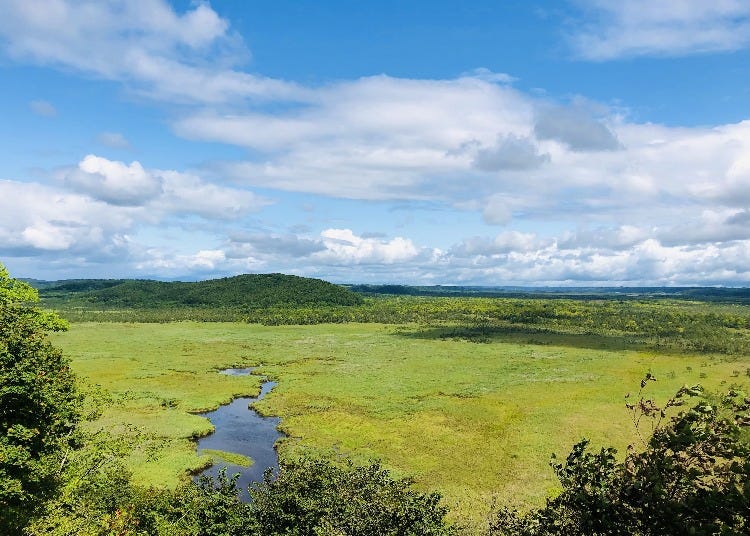
Kushiro is a city located in eastern Hokkaido. The area is brimming with unforgettable natural sights, including Kushiro Shitsugen National Park, the famous Lake Akan in Marimo, Japan's clearest lake, and is home to the majestic red-crowned crane, just to name a few.
Here, we've carefully selected ten amazing things to do in Kushiro, a place with so many of Japan's best scenic spots.
- Table of Contents
-
- 1. Kushiro Washoku Market: Make your own seafood rice bowls
- 2. Kushiro Shitsugen National Park: Ride a canoe through the green and the blue
- 3. Nusamai Bridge: Watch the city lights at sunset
- 4. Akan Lake: Experience the cute and mysterious natural wonders, "marimo"
- 5. Lake Akan Ainu Theater, Ikor: Get closer to the native Ainu people
- 6. Eat Zangi: The local dish that has spread from Kushiro to all of Hokkaido
- 7. Kamuy Lumina: An illuminated nighttime walk in the forest to experience Ainu folklore
- 8. Watanabe Experience Farm: Experience dairy farming in Teshikaga
- 9. Kushiro Marshland Train "Norokko-Gou": Take a leisurely trip through Kushiro's marshlands
- 10. Kushiro Marsh Wildlife Conservation Center: Learn more about the importance of wildlife conservation
- Kushiro, the land of wildlife and wonder
1. Kushiro Washoku Market: Make your own seafood rice bowls
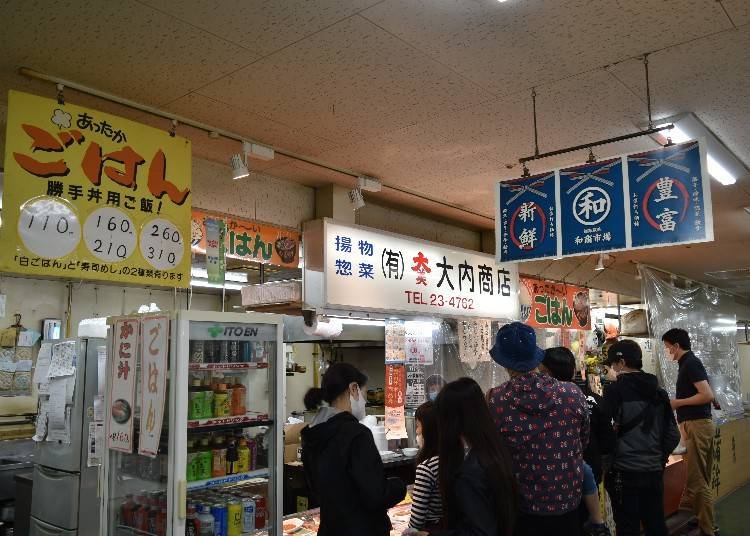
Alongside the Hakodate Morning Market and Sapporo Nijo Market, Kushiro Washou Market is one of the top three markets in Hokkaido, and is just a minute's walk from Kushiro Station.
In the market housing around 60 stores, you can find fresh seafood, marine products, and various dried food. But what made this market so famous is its "Katte Don" (lit. rice bowl as you please).
The Katte Don is said to have originated in the 1980s when the owner of a fresh fish shop had young people who visited the market on a trip. They bought a bowl of white rice and put on different fresh fish one by one.
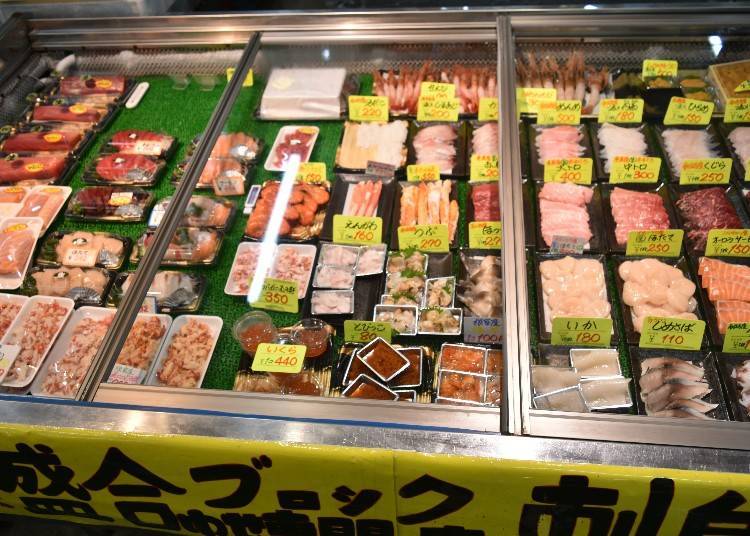
To have a go for yourself, you buy white rice at a souzai shop (side dish shop) within the market, go around the fishmongers, and add your favorite sashimi to the rice to create your own original seafood bowl.
You can have as much rice as you please, and as much fish as you please, so you are doing it in a "katte" manner, making a "katte don"! You might even inadvertently come across your new favorite sashimi.
-

-
Address
13-25, Kuroganecho, Kushiro-shi, Hokkaido, 085-0018
View Map -
Nearest Station
Kushiro Station (Nemuro Main Line / Hanasaki Line)
3 minutes on foot
- Phone Number 0154-22-3226
-
Address
13-25, Kuroganecho, Kushiro-shi, Hokkaido, 085-0018
2. Kushiro Shitsugen National Park: Ride a canoe through the green and the blue
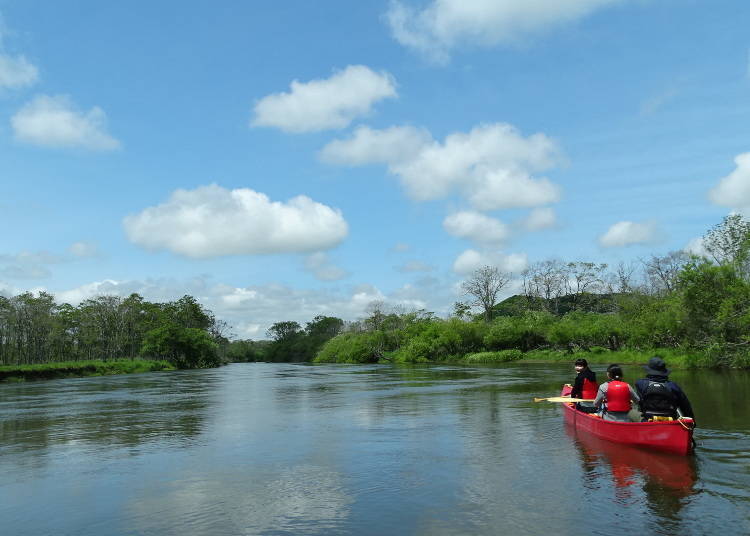
Kushiro Shitsugen National Park is a wetland through which the Kushiro River and its tributaries run. It's so big that it could hold the entirety of Tokyo's 23 wards (which total 627.6 km²).
Around 6,000 years ago, this area was part of the ocean, but over the years, the area has transformed into a marsh or wetland.
The wetlands create a difficult environment for construction, so the area has thankfully escaped over-development. The area is now a magical sanctuary home to around 2,000 precious species of flora and fauna, including the red-crowned crane, a species designated as a Special Natural Monument.
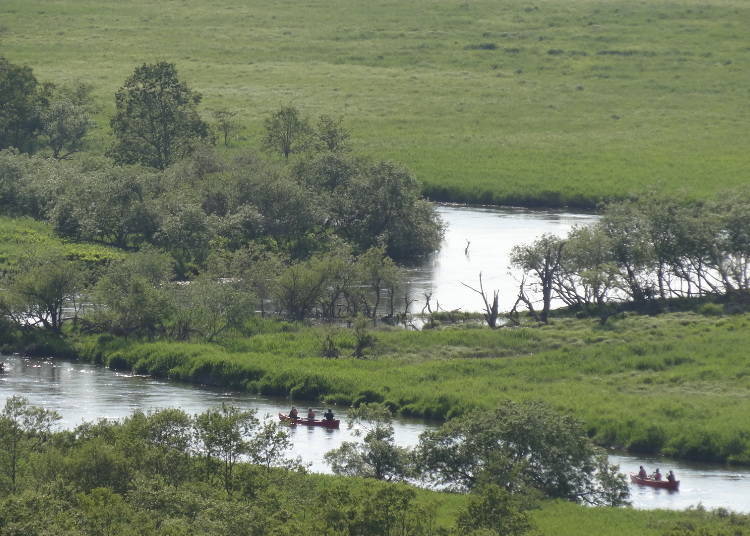
The Kushiro Marsh and River are based about a 20-minute drive from Kushiro Station and offer year-round private canoe tours of the Kushiro Marsh and Kushiro River.
As soon as you set off on the canoe trip with your expert guide by your side, you'll feel closer to nature. So close that you can feel the movement and life of the wildlife all around you.
3. Nusamai Bridge: Watch the city lights at sunset
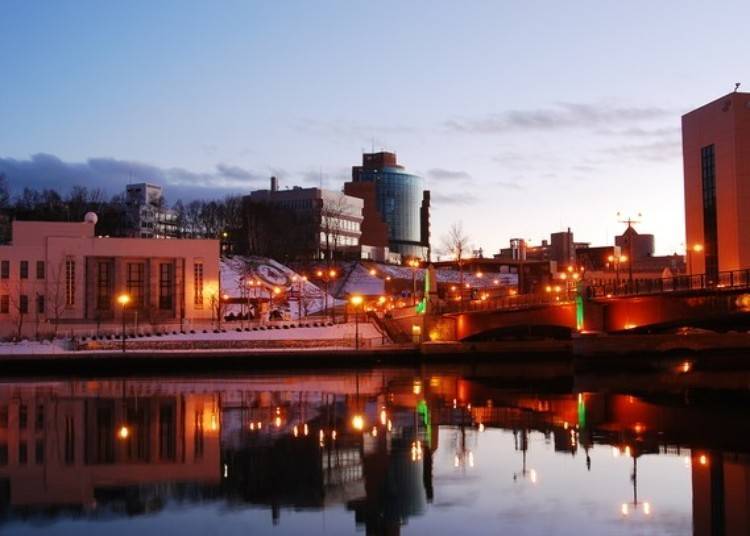
Nusamai Bridge is a bridge that crosses over the Kushiro River in Kushiro city. After the bridge's collapse in 1900, it was rebuilt and named Nusamai Bridge after the name of the area itself.
The current bridge was completed in 1976. The construction of the bridge took on new challenges, such as the hands-on planning involving local citizens.
The bridge is also often referred to as the "Artistic Bridge" (Geijutsutekina Hashi) because of the four sculptures in place made by four different artists, known as "The Statues of the Four Seasons" (Shiki no zou).
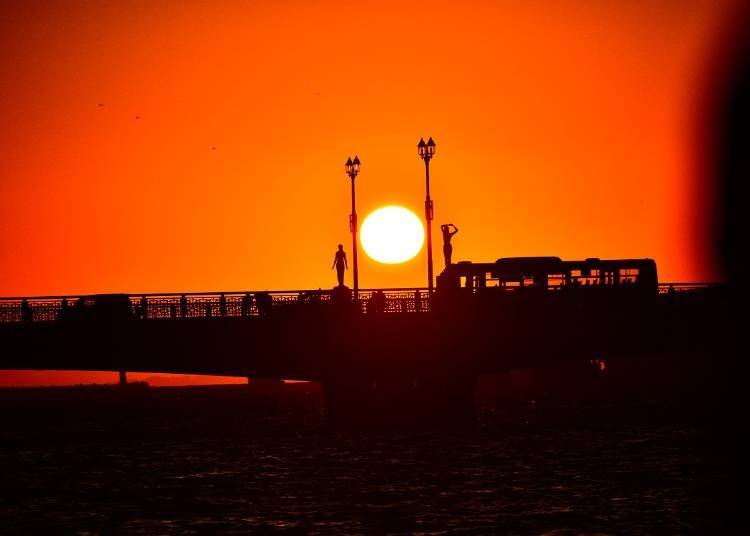
To get to Nusamai Bridge, all you need to do is head seaward from the station and follow the signs. At dusk on a clear day, the port of Kushiro is dyed bright with the colors of sunset, making for a dazzling spectacle.
At sunset, the street lights come on, and the river sparkles with the reflections of the city lights. Even for first-time visitors, there is something nostalgic and comforting about the scene.
-

-
Address
Kitaodori, Kushiro-shi, Hokkaido, 085-0015
View Map -
Nearest Station
Kushiro Station (Nemuro Main Line / Hanasaki Line)
10 minutes on foot
- Phone Number 0154-31-1993
-
Address
Kitaodori, Kushiro-shi, Hokkaido, 085-0015
4. Akan Lake: Experience the cute and mysterious natural wonders, "marimo"
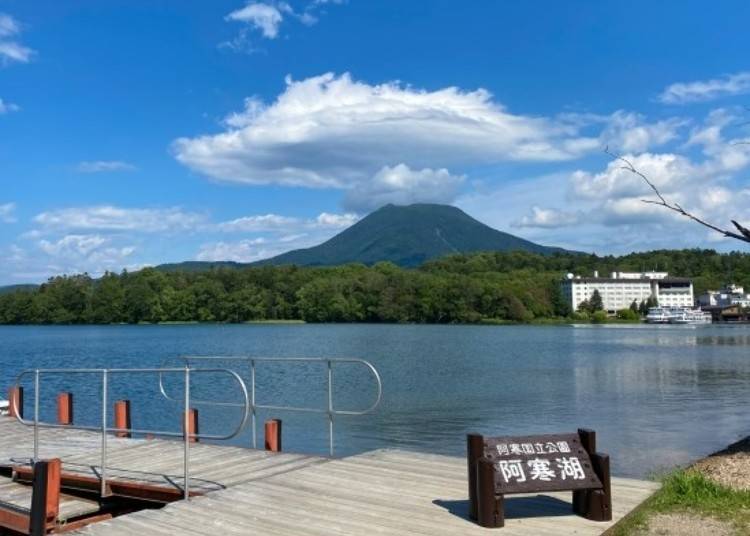
Located an hour and 10 minutes by car from Kushiro Airport, Lake Akan is a caldera created by an eruption about 150,000 years ago.
Four islands dot the lake, and it has its own ecosystem, home to "marimo," perfectly round moss balls created by nature. Marimo are designated as a Special Natural Monument.
Here you'll also find sockeye salmon, a type of salmon that lives its life out in the marsh. Marimo are relatives to algae and grow in the water being constantly rounded off by the force of the wind and the waves as they float on the bottom of the water.
Although you can find marimo elsewhere in the world, such as in Europe, Russia, and North America, it is said to be quite rare for them to become as perfectly round as the ones you can find in Lake Akan.
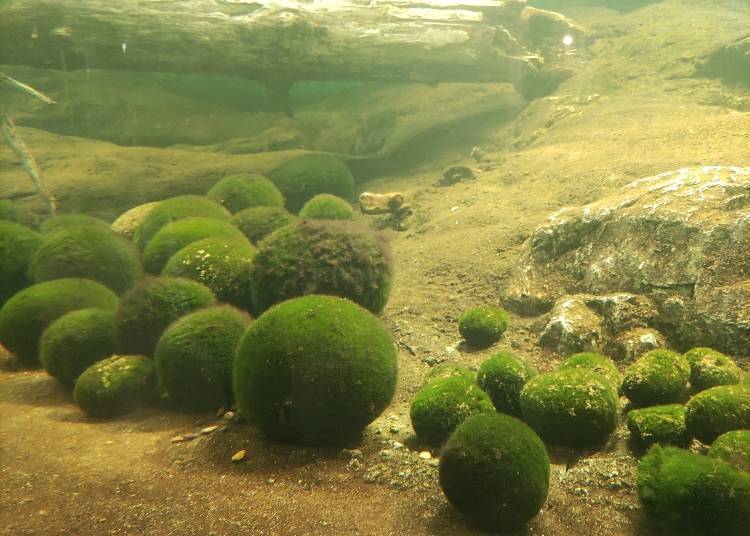
You cannot enter the Marimo nature reserve itself, but you can see them by taking a sightseeing boat to Chuurui Island's Marimo Exhibition Center.
Make sure you don't miss their large exhibition tanks recreating the natural phenomenon. The sightseeing boats in early spring are quite a sight to behold, as they crack through the ice on the frozen lake. This is a memorable experience that you can only find at Lake Akan.
-

-
Address
Akanchoakankoonsen, Kushiro-shi, Hokkaido, 085-0467
View Map -
Nearest Station
Bihoro Station (Sekihoku Main Line)
- Phone Number 0154-31-1993
-
Address
Akanchoakankoonsen, Kushiro-shi, Hokkaido, 085-0467
-
Akan Kanko Kisen阿寒観光汽船
- Address 1-5-20 Akanko Onsen, Akan-cho, Kushiro City, Hokkaido 085-0467
- Phone Number 0154-67-2511
・Hours: 6:00 a.m. - 5:00 p.m. (depending on the time of year)
・Admission: 2,000 yen for adults and 1,040 yen for children
・Closed during winter
5. Lake Akan Ainu Theater, Ikor: Get closer to the native Ainu people
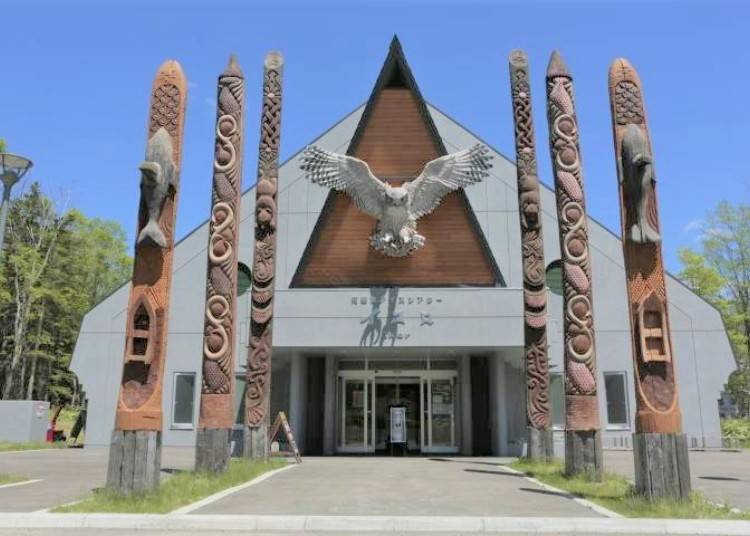
Located about a 90-minute drive from Kushiro Station and about a 60-minute drive from Kushiro Airport, the Akan Lake Ainu Theatre "Ikor" is the first indoor theatre dedicated to Ainu culture in Japan. "Ainu" means "human" in the Ainu language. There is also a concept based on the idea that all things in nature have a heart or soul, and that they are a manifestation of the "kamuy" (gods or spirits).
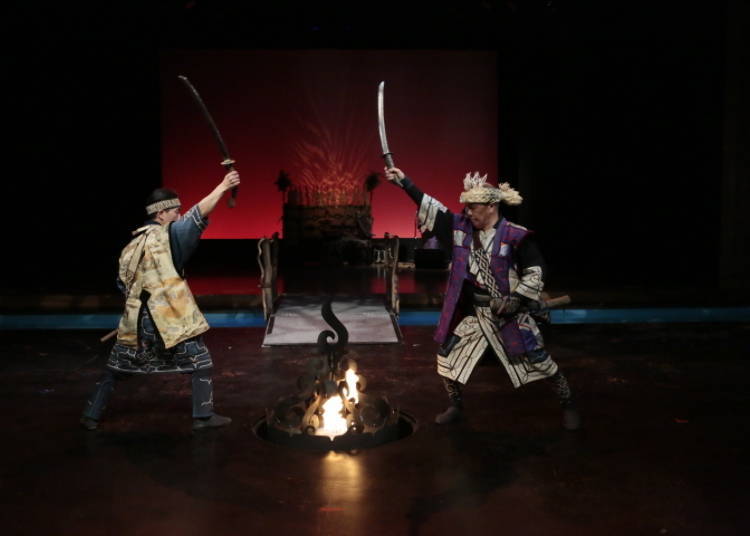
The Ainu people have formed a unique culture. The Akan Lake Ainu Theatre Ikor is officially designated as an "Important Intangible Folk Culture Asset", and the performance of the Akan Traditional Ainu Dance is registered as part of the UNESCO Intangible Cultural Heritage List. So you know that when you visit, you will truly experience the wonders of Ainu culture. The powerful performance will draw you into the story before you know it.
-
Lake Akan Ainu Theater Ikoro阿寒湖アイヌシアターイコㇿ
- Address 4-7-84 Akanko Onsen, Akancho, Kushiro City, Hokkaido 085-0467
- Phone Number 0154-67-2727
・Hours: 9:00 a.m. - 9:30 p.m. (Performance times vary depending on the time of year) (Find out more on the official website)
・Admission: Ainu traditional dance: adults (junior high school students and above) 1,500 yen, junior high school students (junior high school students) 700 yen, toddlers free
・Akan Yukar "Lost Kamuy": Adults (junior high school students and above) 2,200 yen, junior high schools students (Elementary School Students) 700 yen, toddlers free
・Closed: Refer to official website
6. Eat Zangi: The local dish that has spread from Kushiro to all of Hokkaido
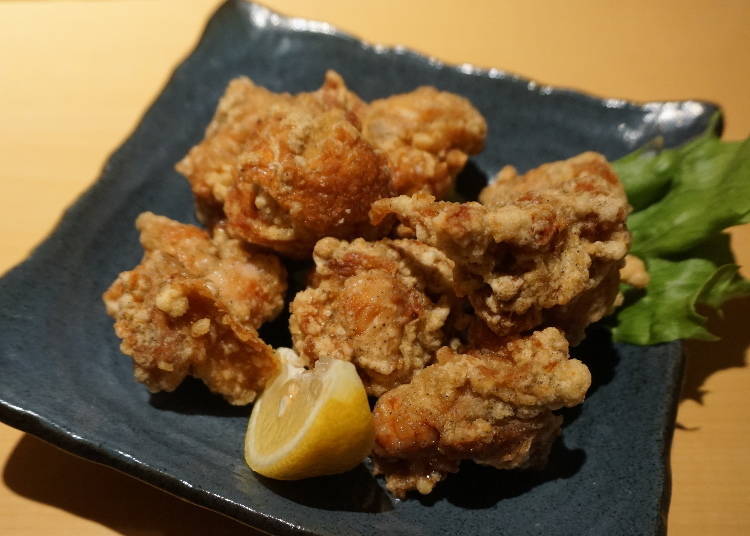
In Hokkaido, there is a kind of deep-fried chicken called "Zangi," which is a local specialty. It's said to have started in the 1950s when a chicken restaurant in Kushiro city began frying chicken in small pieces chopped directly from an entire chicken.
It's said that the name came from adding "un" or "n," meaning "luck," to the Chinese word for fried chicken "za-ji" or "za-chi," making "Zangi" in Japanese.
Now it's a standard at izakaya (Japanese pubs) far and wide, and it goes great with alcohol.
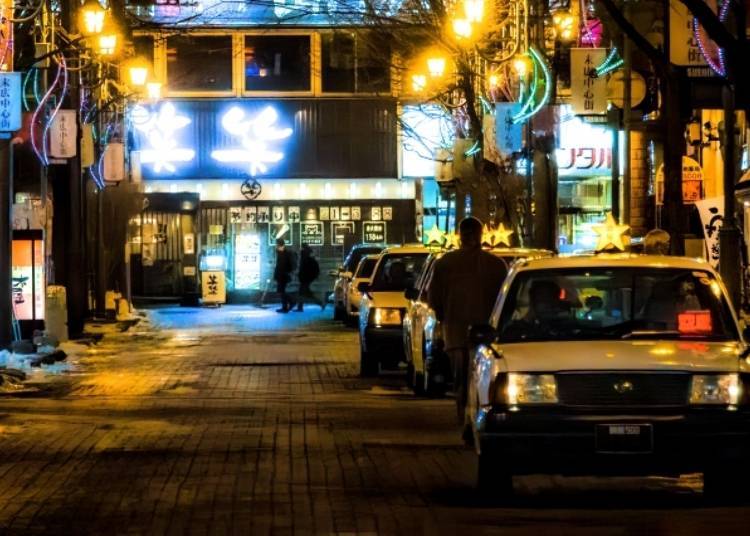
Sometimes people talk about the difference between the usual karaage (Japanese fried chicken) and zangi, saying, "Zangi has a stronger flavor than regular karaage" and "Zangi is made by soaking the chicken in a sweet soy-based sauce before frying."
But the truth is, there's no one distinct difference. Given that it was originally a dish served in restaurants, many Hokkaido-ites these days call any fried chicken served in an izakaya zangi. You can also buy zangi at many restaurants and supermarkets, so make sure to try the real zangi in Kushiro.
7. Kamuy Lumina: An illuminated nighttime walk in the forest to experience Ainu folklore
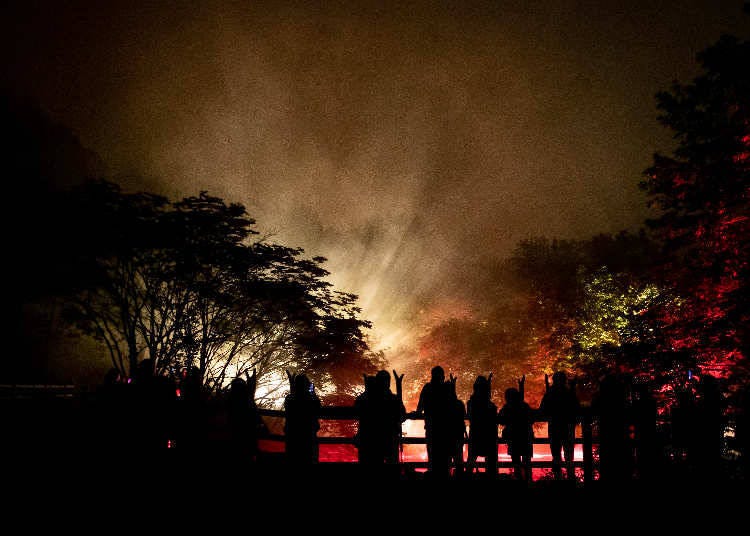
KAMUY LUMINA is part of the worldwide Lumina Nightwalk Series development by MomentFactory, based in Montreal, Canada. This is the first time one part of their series has been held in a national park. The novel digital art experience invites you to participate in the Ainu story.
A fantasy world is created with sounds, lights, and projections, opening up new pathways on a night-time walk in the forest just by Lake Akan. When you arrive, you will be given a "rhythm stick," based on a traditional Ainu staff.
The rhythm stick guides you through your journey with audio and lights illuminating at your feet. The path comprises eight zones, with digital art and various light shows illuminating the woods.
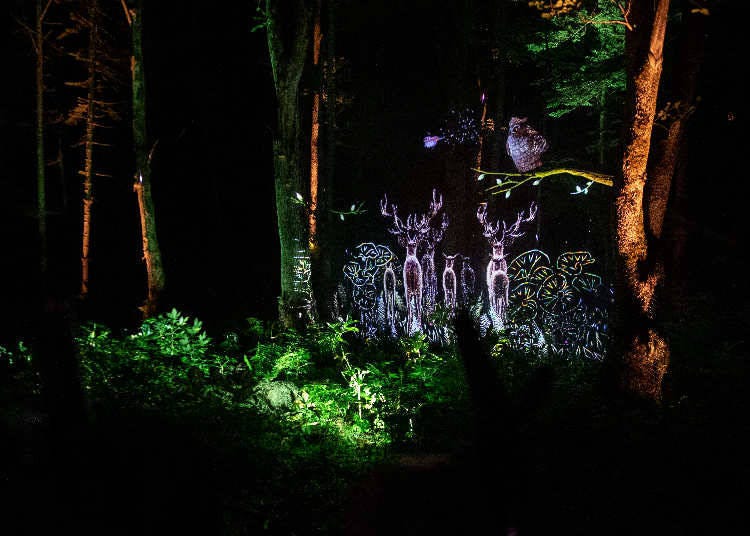
Using the latest digital technology in projection mapping and light and sound, a story is told based on the ancient folklore of the Ainu people of Akan. The experience is easy to understand and fun for all who enter.
Multilingual support
The official website is available in English, Korean, Chinese, and Japanese.
-
KAMUY LUMINAカムイルミナ
- Address 1-5-20 Akankoon Onsen, Akan-cho, Kushiro-shi, Hokkaido 085-0467
- Phone Number 0154-65-7121
・Open dates: Mid-May to Mid-November
・Hours: 30 minutes after sunset *Time varies by season See official website for details
・Duration: approx. 50 minutes
・Admission: 3,500 yen for adults and 1,700 yen for children
8. Watanabe Experience Farm: Experience dairy farming in Teshikaga
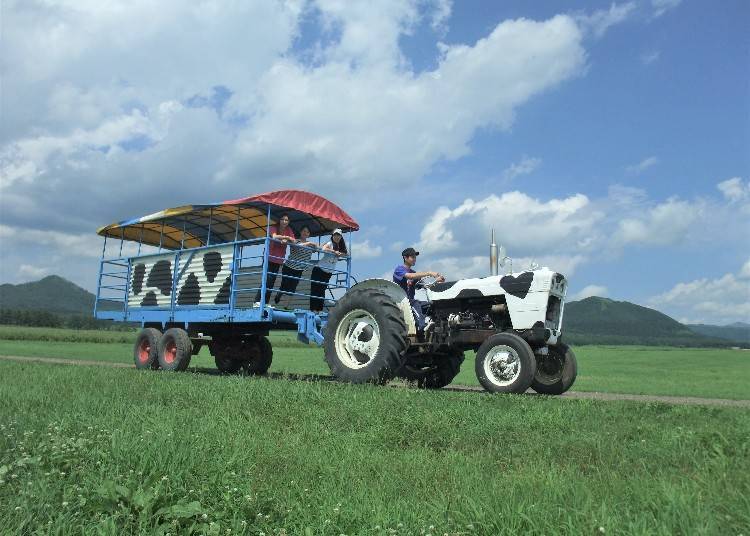
Watanabe Experience Farm is a 15-minute drive from JR Mashu Station and an 80-minute drive from the Akan Interchange.
The ranch has 70 hectares of land and 120 dairy cows in its meadows at the base of Mashu Mountain. Here you can experience the fun of dairy farming for yourself with one of their many fun packages, such as the "Milking experience and tractor circuit" or their "butter and ice cream making" experiences.
If you want something more in-depth, there is also a "half-day ranch experience course," which explains the ins and outs of dairy farming in an easy-to-understand way.
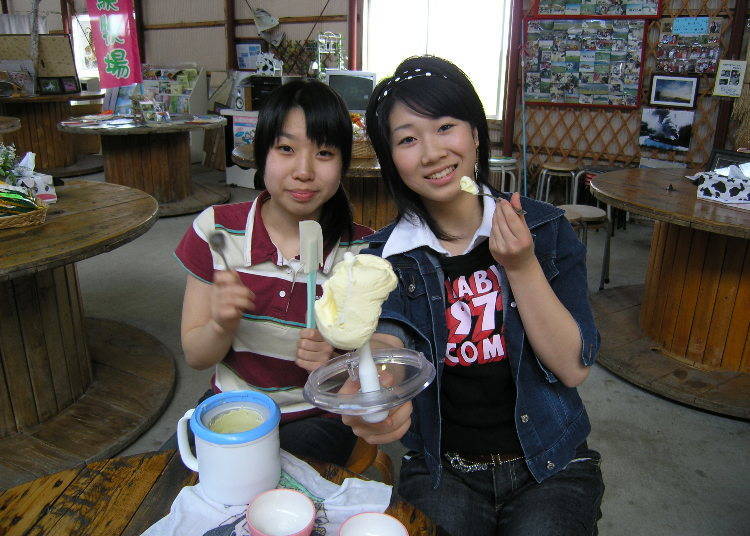
At the food court, they sell "Farm cheese and French-style bread" (牧場のチーズでフランスパン) made with milk collected from right there on the Watanabe Experience Farm, as well as "Melty Mashu Pizza" (とろーり摩周ピザ), and other tasty treats.
Their soft-serve ice cream made with "nama chocolate" (chocolate ganache) and black sesame seeds is also a popular choice. Here you can experience the dairy paradise of Hokkaido to its fullest.
-
Watanabe Experience Farm渡辺体験牧場
- Address 646-4 Teshikaga-cho, Kawakami-gun, Hokkaido 088-3222
- Phone Number 015-482-5184
・Hours: 9:30 a.m. - 3:30 p.m.
・Admission: Depends on your choice of experience package
・Closed: Irregular holidays
9. Kushiro Marshland Train "Norokko-Gou": Take a leisurely trip through Kushiro's marshlands
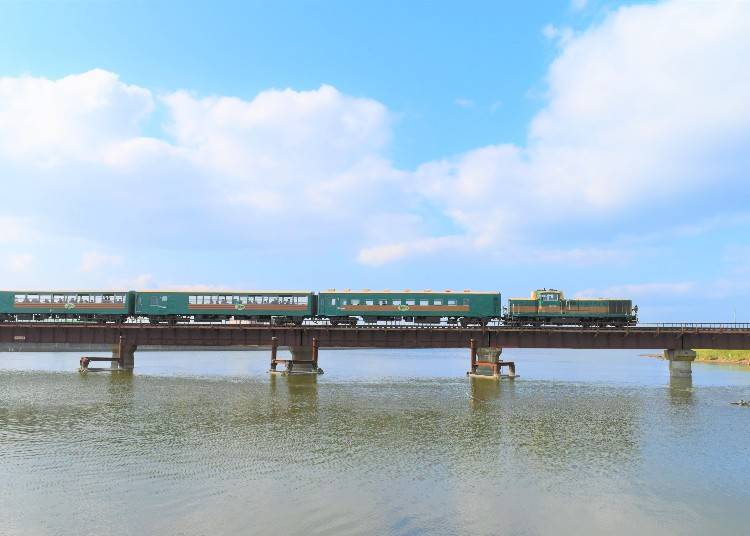
The Kushiro Marshland Train "Norokko-Gou" is a resort train that runs from Kushiro to Toro on the JR Senmo Line every year from April to October.
As you pass through the Kushiro wetlands in the open-air, private vehicle, you may even be lucky enough to see some Yezo sika deer or Ezo red foxes.
The train runs on Saturdays, Sundays, public holidays, and summer holidays. There are usually 1-2 round trips.
Depending on the time of the year, there are also other premium timetables, such as the Sunset Norokko-Gou (夕陽ノロッコ号) and an extended service that goes to Kawayu Onsen.
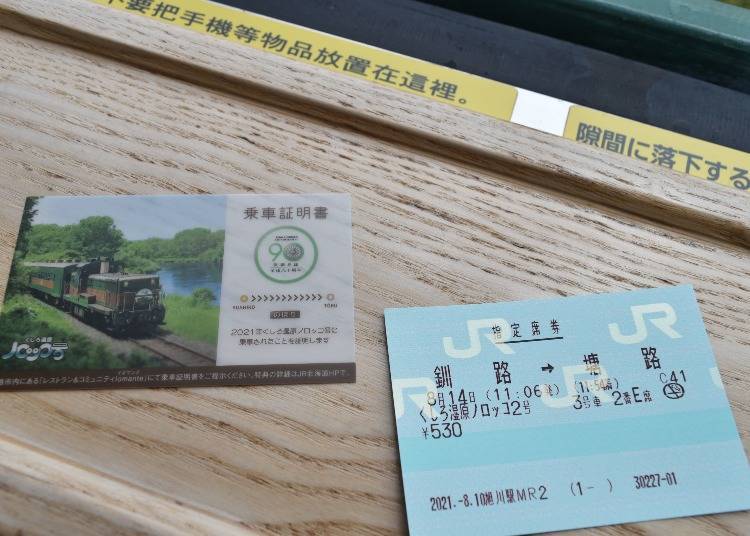
As for seating, you can choose between the 3 private cars with designated box and bench seats, or the 4 general passenger cars with unreserved seats, one of which is refurbished.
On the train, there is also a small kiosk where you can buy limited-edition items, such as ticket replicas, miniature trains, pudding made using local milk, and more.
-

-
Address
Kushiro-shi, Hokkaido JR Senmo Main Line Kushiro Station, 085-0000
View Map -
Nearest Station
Kushiro Station (Nemuro Main Line / Hanasaki Line)
- Phone Number 011-222-7111
-
Address
Kushiro-shi, Hokkaido JR Senmo Main Line Kushiro Station, 085-0000
10. Kushiro Marsh Wildlife Conservation Center: Learn more about the importance of wildlife conservation
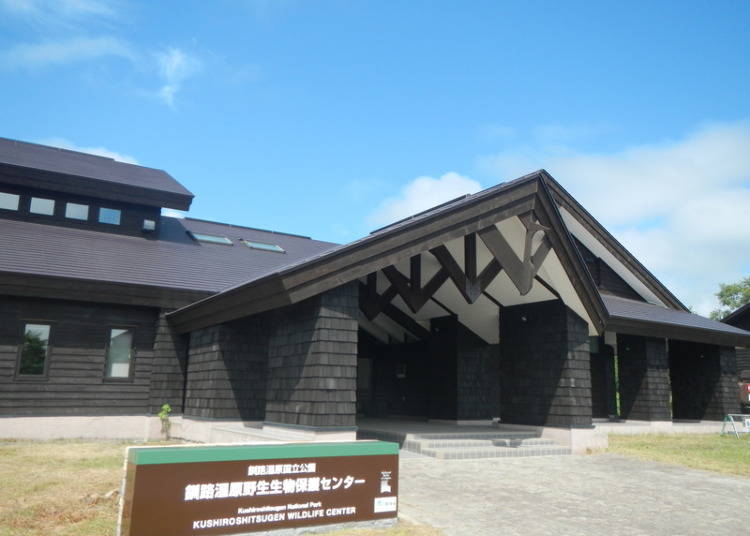
After a 40-minute ride on the Tsurui-bound Akan Bus from the JR Kushiro Station Bus Terminal, you'll find yourself at the Kushiro Marsh Wildlife Conservation Center.
The impressive center is firmly committed to the protection of rare birds such as Blackiston's fish owl, the white-tailed eagle, Stellar's sea eagle, and the red-crowned crane.
With the reopening on August 10, 2021, a new exhibit was set up that recreates the habitats of birds of prey so that you can learn more about the behaviors and the way of life of the magnificent birds of eastern Hokkaido. There are also "backyard tours" where you can see the protected birds up close in enclosures.
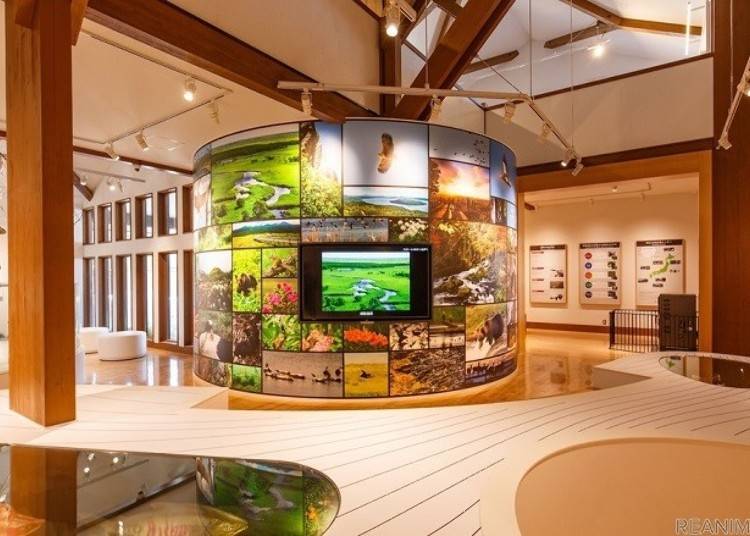
Here you can learn so much about Hokkaido's impressive birds. At the "Shiki no Gradation Wall" (Four Seasons Wall), you'll get a sense of how the plants and animals change in appearance throughout the year.
At the "Mimi Sumashi Tunnel" (Tunnel of careful listening), you'll hear the calls of birds and various wild animals. And at the birds of prey observation corner, you'll find diagrams showing the true size of giant birds like Blakiston's fish owl and the red-crowned crane, as well as being able to measure up against them in the "Scale Gallery."
Learning more about the world that these rare birds live in will bring you that much closer to the beautiful wildlife.
-
Kushiro Marsh Wildlife Conservation Center釧路湿原野生動物保護センター
- Address 2-2101 Hokuto, Kushiro-City, Hokkaido 084-0922
- Phone Number 0154-56-2565
・Hours: April-October 9:30 a.m. - 4:30 p.m.; November-March 9:30 a.m. - 4:00 p.m.
・Admission: Free admission
・Closed: Wednesday, New Year's Eve (December 28 - January 4)
Kushiro, the land of wildlife and wonder
One of the best things about Kushiro is just how untouched its natural sights remain. As you pass by on the train, you may catch a glimpse of wildlife in their natural habitat; the prancing Yezo sika deer, the sneak of the Ezo foxes, or perhaps a red-crowned crane resting its wings.
A visit to Kushiro will allow you an experience like no other, surrounded by the joys of nature.
Original Japanese text by: Masakazu
Translated by: Cassandra Lord
Please check the official websites for the latest information.
- Area
- Category
*Prices and options mentioned are subject to change.
*Unless stated otherwise, all prices include tax.
Popular Tours & Activitiess
Recommended places for you
-

Former Hokkaido Government Office Building (Red Brick Office)
Other Historic Sites
Sapporo / Chitose
-
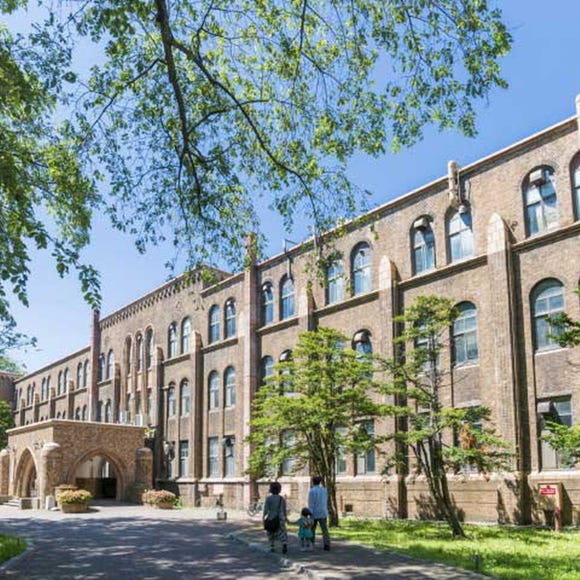
Hokkaido University
Other Architecture
Sapporo / Chitose
-
Appealing

Rukku and Uohei
Izakaya
Sapporo / Chitose
-

Niseko Village Ski Resort
Skiing & Snowboarding
Niseko / Rusutsu
-
Appealing

Odori Park
Parks
Sapporo / Chitose
-

Sapporo Clock Tower
Landmarks
Sapporo / Chitose
-

Expert-Recommended: 9 Hakodate Hotels Serving Up the Best Breakfasts in Town
by: Nobuka Kawashima
-
Ad

Welcome to Sapporo! Here’s How to Expore the Ciy Like a Local
-
Ad

Smart Ways to Avoid Crowds and Enjoy a Safe, Comfortable Trip to Otaru.
-
Ad

Explore Eastern Hokkaido from Tancho Kushiro Airport: Your Gateway to Grand Nature
-
Ad

Smart Ways to Avoid Crowds and Enjoy a Safe, Comfortable Trip to Noboribetsu Onsen
-
Ad

Sapporo SATUDORA Shopping Guide: Get Souvenirs, Medicine & More at This Iconic Drugstore (Special Deal Inside!)
-

9 Days in Hokkaido: Suggested Itinerary Including Lake Toya, Muroran and Noboribetsu
-

JR Edition: Visit all of Tokyo in one Day with the Tokyo Metropolitan District Pass!
-

10 Awesome Things To Do in Hakodate, Hokkaido
-

6 Surprisingly Cheap Things in Japan
-

Daisetsu Mori-no Garden: Enjoy an elegant Hokkaido holiday at this fairy-tale forest!
-

The Best of Japan: 11 Major Cities Every Traveler Should Visit
- #best sushi hokkaido
- #things to do hokkaido
- #best ramen sapporo
- #what to bring to japan
- #new years in tokyo
- #what to buy in ameyoko
- #japanese nail trends
- #what to do in odaiba
- #onsen tattoo friendly tokyo
- #daiso
- #best sweets otaru
- #japanese fashion culture
- #best nature furano
- #japanese convenience store snacks
- #best japanese soft drinks


















